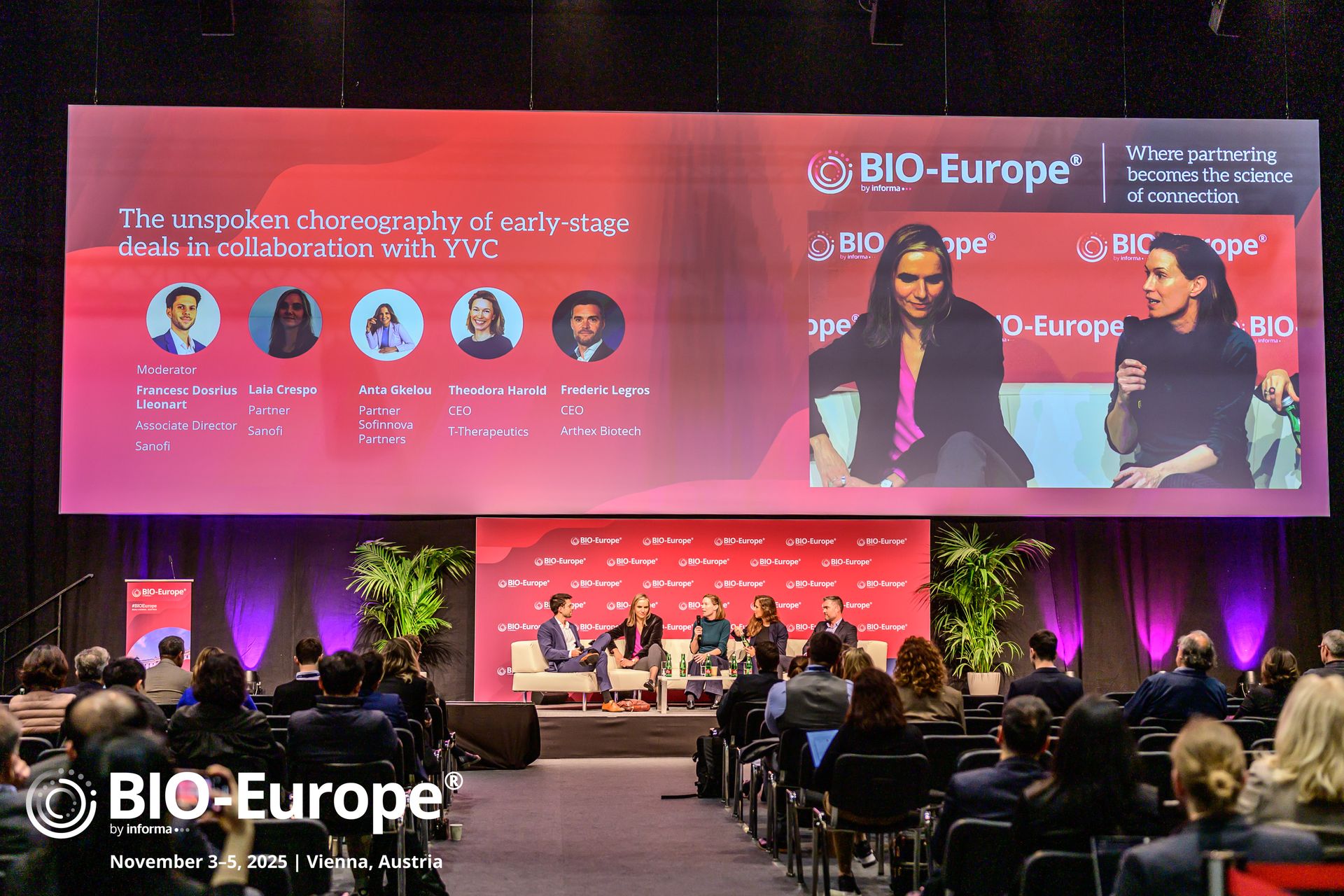The 31st annual BIO-Europe took place in Vienna, Austria, from November 3–5, 2025, bringing the global life sciences community back to a city long known for inspiring world-changing ideas. Once the academic home of Freud, Boltzmann, and Schrödinger, Vienna’s historic coffee houses hosted thought provoking conversations as more than 5,900 life science professionals convened from over 3,200 companies across more than 60 countries. With over 32,000 one-to-one meetings conducted, the event reaffirmed its role as Europe’s premier platform for strategic partnerships, investment, and the advancement of transformative medical innovation.
Europe’s ATMP momentum and regional innovation hubs
Across Europe, momentum around Advanced Therapy Medicinal Products (ATMPs) continues to accelerate. These therapies are reshaping the future of medicine, and regional innovation hubs are crucial in supporting discovery, development, and translation. Wallonia is home to a vibrant and innovative life sciences ecosystem of global industrial leaders, SMEs and start-ups developing products or offering state-of-the-art technologies/products/services, 5 universities and several world-class research centres, dedicated science parks, supply chain experts & 2 CEIV Pharma airports. By connecting universities, biotech companies, manufacturers, hospitals, and investors, Wallonia demonstrates how regional specialization, coordinated policy, and strategic investment can position Europe as a global leader in advanced therapeutics.
Fusix Biotech: Fighting cancer through fusion
One of the highlights of BIO-Europe 2025 was the announcement of Fusix Biotech GmbH as the winner of the Startup Spotlight competition. Led by CEO Jennifer Altomonte, Fusix Biotech impressed the jury with its pioneering approach to cancer treatment. Founded by four scientists trained in molecular biology, virology, immunology, and oncology, the company builds its strategy around the vision of fighting cancer through controlled cell fusion. Their proprietary oncolytic virus platform, InFUSE™, is designed to eliminate tumors through a combination of mechanisms within the tumor microenvironment. By inducing tumor-specific cell lysis, releasing therapeutic agents locally, activating immune cells, and triggering targeted inflammation, InFUSE™ initiates a cascade of events that not only destroys tumor cells but also primes the body’s immune system for a durable anti-tumor response. This multilayered mechanism offers hope for cancers that have traditionally resisted immunotherapy, and Fusix’s recognition highlights the growing significance of immune-oncology strategies that combine direct oncolysis with systemic immune activation.

VAR2 Pharmaceuticals: Targeting tumors with precision
Another notable company showcased at BIO-Europe was VAR2 Pharmaceuticals ApS, a Danish clinical-stage biotech spun out of the University of Copenhagen in 2012. VAR2 Pharma builds its approach around the discovery of oncofetal chondroitin sulfate (ofCS), a tumor-specific glycosaminoglycan expressed in over 95 percent of cancer types and largely absent from healthy tissues. This discovery enables the design of monoclonal antibodies, Vartumabs, capable of targeting ofCS with high precision—something traditional antibodies cannot achieve due to subtle structural differences in glycosaminoglycans. Vartumabs form the foundation of a therapeutic portfolio that includes antibody-drug conjugates, CD3-bispecific antibodies, and CAR-T therapies. Preclinical studies, including patient-derived xenograft models, demonstrate high efficacy and safety. The company has raised over €30 million, maintains full intellectual property ownership, and is conducting a first-in-human Phase 0 immune-PET/CT imaging trial that shows precise tumor accumulation with minimal off-target binding. GMP manufacturing of an ofCS-targeting antibody-drug conjugate began in July 2025, with clinical entry planned for early 2027.
Organ-on-a-chip: Transforming drug development
Beyond oncology, BIO-Europe 2025 highlighted technologies that are reshaping drug development long before therapies reach the clinic. The Netherlands has emerged as a leader in organ-on-a-chip (OoC) technologies, which replicate essential human organ functions on microfluidic chips. These chips allow human cells to grow in three-dimensional structures that mimic real organ behavior, enabling more accurate predictions of drug toxicity and efficacy. As an animal-free technology, OoC offers faster development timelines, safer therapies, and a major step toward precision medicine. Advances in multi-organ systems and patient-derived models continue to expand its impact across therapeutic areas.
Recognizing the transformative potential of OoC, the Ministry of Economic Affairs, Health~Holland, the Netherlands Enterprise Agency (RVO), the Dutch Embassy in Switzerland, and industry partners developed a strategic multi-year collaboration to boost OoC adoption and global positioning. The resulting market development plan for 2026–2028 strengthens Dutch–Swiss cooperation, elevates both countries as international leaders, and initiates programs designed to accelerate development, commercialization, and global visibility. These coordinated efforts support scientific progress, economic growth, and improved patient outcomes, positioning Europe as a leading force in biomedical innovation.

Data challenges and the future of medicine
As Europe advances in oncology, advanced therapies, and organ-on-a-chip technologies, the pharmaceutical industry faces a critical barrier: the challenge of human data. Despite generating enormous amounts of information, pharma still lacks high-quality, interoperable, and ethically accessible human datasets needed for AI-driven drug development and precision medicine. Many existing data banks were built for clinical administration rather than deep biological insight, leaving researchers with fragmented or incomplete information.
Innovations highlighted at BIO-Europe 2025—tumor-specific antibodies, oncolytic viral platforms, and organ-on-a-chip systems—produce richer, more predictive human-relevant data that help bridge this gap. Europe now stands at a turning point: pairing scientific leadership with modern data ecosystems can make drug development faster, more accurate, and truly human-centered.





